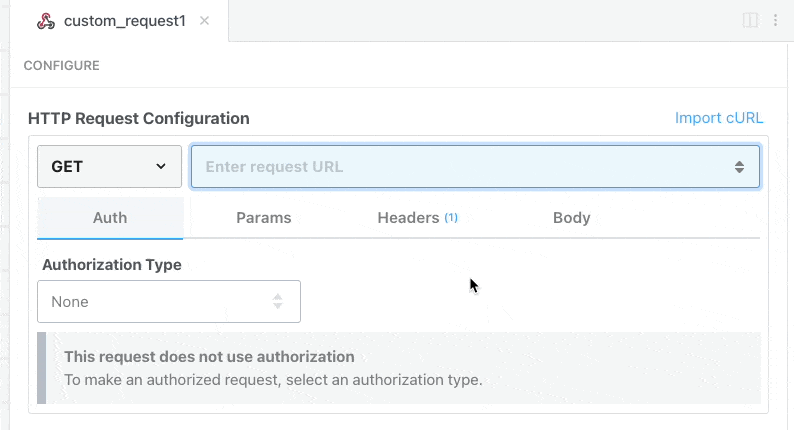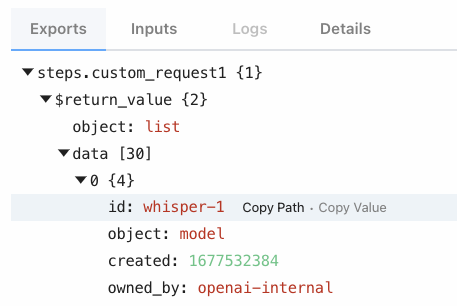What do you want to automate
with HTTP / Webhook and Alpaca?
Prompt, edit and deploy AI agents that connect to HTTP / Webhook, Alpaca and 3,000+ other apps in seconds.
Trusted by 1,000,000+ developers from startups to Fortune 500 companies
Popular HTTP / Webhook and Alpaca Triggers#
Get a URL and emit the full HTTP event on every request (including headers and query parameters). You can also configure the HTTP response code, body, and more.
Get a URL and emit the HTTP body as an event on every request
Emit new event when the content of the URL changes.
Popular HTTP / Webhook and Alpaca Actions#
Attempts to cancel all open orders. A response will be provided for each order that is attempted to be cancelled. If an order is no longer cancelable, the server reject the request, See the docs
Attempts to cancel an open order. If the order is no longer cancelable (example: status=filled), the server will reject the request, See the docs
Send an HTTP request using any method and URL. Optionally configure query string parameters, headers, and basic auth.
Closes (liquidates) all of the account’s open long and short positions. A response will be provided for each order that is attempted to be cancelled. If an order is no longer cancelable, the server will reject the request, See the docs
Send an HTTP GET request to any URL. Optionally configure query string parameters, headers and basic auth.
Overview of HTTP / Webhook#
Build, test, and send HTTP requests without code using your Pipedream workflows. The HTTP / Webhook action is a tool to build HTTP requests with a Postman-like graphical interface.

Point and click HTTP requests
Define the target URL, HTTP verb, headers, query parameters, and payload body without writing custom code.

Focus on integrating, not authenticating
This action can also use your connected accounts with third-party APIs. Selecting an integrated app will automatically update the request’s headers to authenticate with the app properly, and even inject your token dynamically.

Pipedream integrates with thousands of APIs, but if you can’t find a Pipedream integration simply use Environment Variables in your request headers to authenticate with.
Compatible with no code actions or Node.js and Python
The HTTP/Webhook action exports HTTP response data for use in subsequent workflow steps, enabling easy data transformation, further API calls, database storage, and more.
Response data is available for both coded (Node.js, Python) and no-code steps within your workflow.

Connect HTTP / Webhook#
// To use any npm package on Pipedream, just import it
import axios from "axios"
export default defineComponent({
async run({ steps, $ }) {
const { data } = await axios({
method: "GET",
url: "https://pokeapi.co/api/v2/pokemon/charizard",
})
return data.species
},
})
Overview of Alpaca#
Alpaca API allows you to harness the power of automated trading by providing an interface to manage your stock and equity portfolio through simple API calls. It's particularly suited for building trading bots, algorithmic trading strategies, or just automating interactions with your investment portfolio. Whether you're looking to place trades based on specific market conditions, automatically adjust your portfolio in response to certain triggers, or simply streamline your investment activities, Alpaca's trading API offers a robust solution.
Connect Alpaca#
import { axios } from "@pipedream/platform"
export default defineComponent({
props: {
alpaca: {
type: "app",
app: "alpaca",
}
},
async run({steps, $}) {
return await axios($, {
url: `https://api.alpaca.markets/v2/account`,
headers: {
Authorization: `Bearer ${this.alpaca.$auth.oauth_access_token}`,
},
})
},
})
Community Posts#

